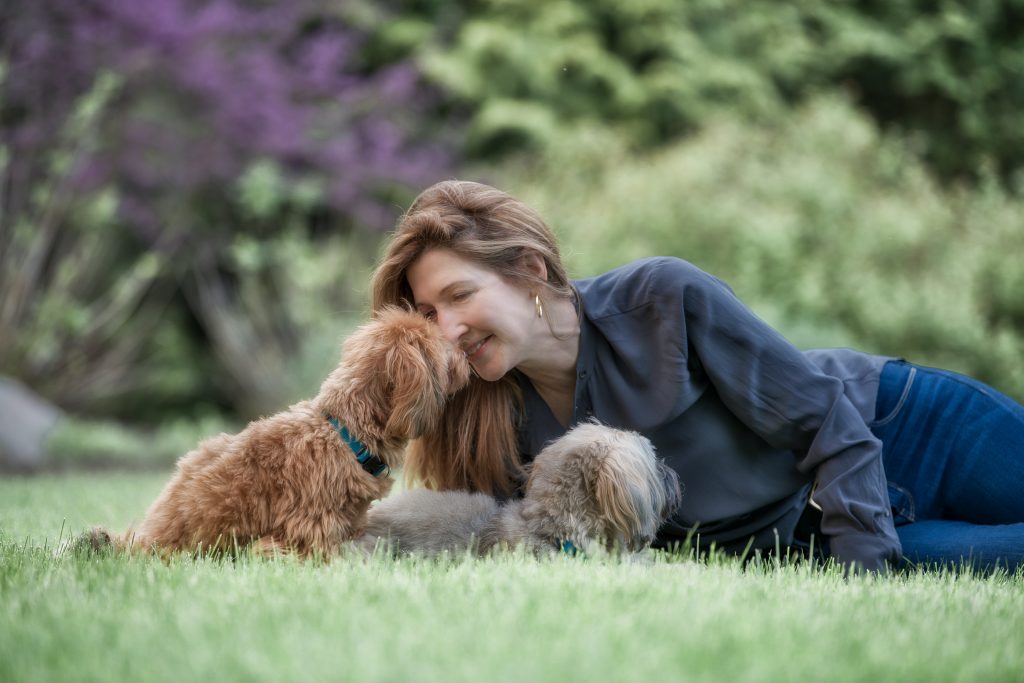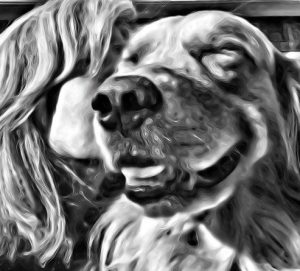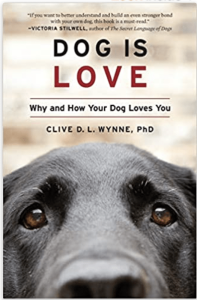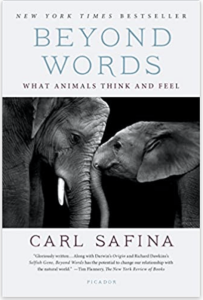
Dog Is Love
Photo by Salty Dog Photography
“Emotion belongs to all of us–human, canine, or otherwise. Our full-of-feeling dogs display jealousy, affection, manipulation, humor, nervousness, playfulness, disappointment, pouting, joy, frustration, restlessness, and…love. For humans, the love our dogs gift us is key to a life well-lived.
I Love My Dogs; Do They Love Me Back?
We all have those casual acquaintances we’re not quite sure about. You know the ones: the people who, for no justifiable reason, just “don’t really like” dogs. They say ridiculous things like “dogs don’t have human feelings” and “you’re anthropromorphizing you know.” They say “you may love your dog, but your dog can’t love you back.”
Humanity hasn’t yet explored the depths of its own consciousness, and yet so many people presume to know, and dismiss as inferior, the minds of other creatures. They plant a flag on the concept of “emotion” and claim human dominion over such experiences. They say canines are merely acting on instinct when they press their foreheads against our own or lay a calming paw on a crying child.
For several centuries, science sided with the dog-disdainers, refusing to acknowledge at times that animals had any feelings, let alone “human” ones.
But in the past decade, science is proving what we “dog people” already know:
dogs don’t just need us—
they love us.
How Dogs Show Love
Our homecomings after lengthy absences prove it: our dogs miss us terribly when we’re gone. In our own family, we remember one particular (pre-COVID) instance when my husband and I had been away for ten days. We had visited our sons on the west coast and left our golden retriever, Romeo, and our Havanese, Phoebe, in the care of our daughter.
Now, Romey and Phoebe love their human sister. They should love her considerably more than they love us, because she spoils them. They receive more cuddling, more petting, and probably more food than they do when we’re in charge. They’re allowed on the pillows and fed food from the table. They have extra walks and probably stay up well past their bedtime. In short, all rules are off when we’re away.
And yet, their ecstatic greetings upon our return demolish any notion that dogs merely show affection to the underlings who serve them well. If that were true, they’d save such reunion fanfare for my daughter, “the fun one,” and merely wag politely when we strict parents show up after an absence. To the contrary, they are undeniably overjoyed to see us…and that joy lasts most of the night.
Romeo’s bark, which he reserves only for these homecomings, is a foghorn in the night and announces our return to surrounding neighbors. After three throaty woofs, he throws himself on his back, legs unceremoniously splayed and paws swimming frantically in midair, his gorgeous golden tail reduced to a dusty mop rhythmically sweeping the garage floor.
In the midst of his hysteria, he nevertheless manages to swat twelve-pound Phoebe out of the way. In true little sister form, however, she is not to be ignored, as she dances insistently before us on her hind legs, straining for the “kisses” greetings she’s come to love.
I crouch on the cold garage floor, reassuring Romeo with belly rubs while bending my face to Phoebe’s snout. She stretches up and plants a decidedly loving smooch on me. And then, using Romeo as a living ladder, she scrambles over him and climbs onto my shoulder for a better share of my attention.
Hours later, when seemingly all has calmed down, we’ll experience several more spontaneous and equally enthusiastic bursts of affection from both dogs. Phoebe will suddenly leap in my lap and bury her nose in my ear. Romeo will use both paws to maintain full body contact with his humans, oftentimes literally gripping my husband’s leg, as though preventing him from walking off again.
So, we (like you) have the anecdotal proof of our dogs’ feelings–they not only love us but they express varying intensities of that love depending on the object and the situation.
The Science of Dog Love And Emotion

Big Dog Kiss, by Jackson Izzo 2015
Before we get to the modern scientific proof that all dogs experience emotions, let’s look at history. Science has long claimed that evolutionary biology, not emotion, drives animal actions. An evolutionary biologist dismisses your dog’s excitement to see you, arguing your dog simply engages in such behavior to gain rewards of food or affection. Likewise, the traditional scientist argues that what you see as your dog’s embarrassment is simply submissive behavior designed to acknowledge you as leader.
To be sure, not all of traditional science missed what we dog-lovers know in our bones. Ancient mathematician Pythagorus believed animals to have the same consciousness as humans. However, from the beginning of time up through most of the 20th century, the mainstream scientific world rejected the idea that dogs have feelings. This opinion was so ingrained that few respectable researchers would even consider investigating canine emotion. To do so made them pariahs in their field.
The New Science of Dog Love
Fortunately, the 21st century brought significant change in such short-sighted (and outrageously incorrect) views of animal and canine consciousness. We now have researchers willing to tackle the challenging arena of animal emotional awareness. In their Oxford University Press article “Animal Ethics and Behavioral Science: An Overdue Discussion?” Harvard researcher Christine Webb and fellow-ethicists Peter Woodford and Elise Huchard cite no less than twelve studies in the past two decades establishing animals’ capacity to innovate, communicate creatively, exhibit mental time-travel, and demonstrate self-awareness, joy, grief, and the topic of this article: love.
It’s good to know that science is finally catching up to what the rest of us know: our canine loved-ones do feel emotion. It’s simply misplaced ego to say that emotion is “human.” It is not. Emotion belongs to all beings, human, canine, or otherwise. Our beloved dogs show jealousy, affection, manipulation, humor, nervousness, playfulness, disappointment, pouting, joy, frustration, restlessness….love. And for humans, the love dogs shower upon us is key to a long, well-lived life.
In his book Dog Is Love: Why and How Your Dog Loves You, Arizona State University’s director of the ASU Canine Science Collaboratory Clive Wynne explores our dogs’ incredible capacity to love their humans. Indeed, in a recent interview, Wynne argues that it is our dogs’ “exaggerated, ebullient desire to form strong connections” that makes them such powerful companions. In short, it is their capacity to give and to receive love.
There you have it. Do dogs feel love too? We know you already have the answer (it’s yes, obviously), but now you know that science backs you up. So, the next time a misguided acquaintance tries to tell you otherwise, suggest that they join the 21st century. Here, today, we understand our companion animals don’t just share our lives, they share our consciousness as well.
Want to read more about the interior lives of animals and the way dogs feel love? We’ve put these two books on our “must read” list:
Read our review of Beyond Words: What Animals Think and Feel
This post may contain affiliate links for your shopping convenience and to help support our work. Any non-Amazon links are not affiliate, but they’re there because we want you to have quick access to products we believe in or are interested in regardless of whether we earn a commission. Our full disclosure, disclaimer, and copyright notices are found here.
You’ll Also Love
Leave a Reply
Your email address will not be published.






